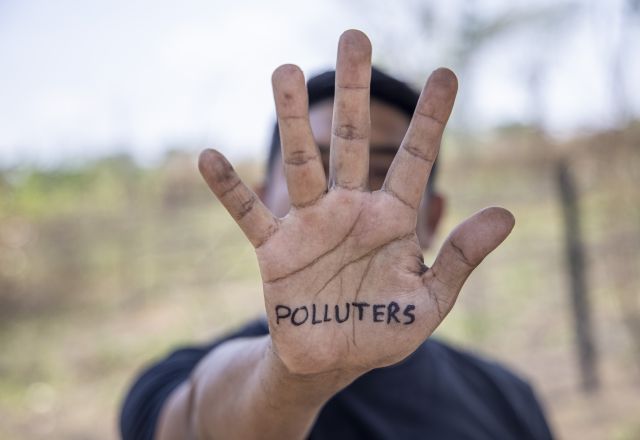
- 4 min read
- Published: 26th July 2024
Top 1 percent bags over $40 trillion in new wealth during past decade as taxes on the rich reach historic lows
The richest 1 percent have amassed $42 trillion in new wealth over the past decade, nearly 34 times more than the entire bottom 50 percent of the world’s population, according to new analysis by Oxfam today ahead of the third meeting of G20 Finance Ministers and Central Bank Governors in Rio de Janeiro, Brazil.
The average wealth per person in the top 1 percent rose by nearly $400,000 in real terms over the last decade compared to just $335 – an equivalent increase of less than nine cents a day – for a person in the bottom half.
This week G20 Finance Ministers are expected to lay the foundations of a groundbreaking global deal to increase taxes on the super-rich. Championed by the Brazilian G20 Presidency and backed by countries including South Africa, Spain and France, the proposal comes amid growing public demand for measures to rein in extreme levels of inequality and ensure that the rich pay their fair share.
“Inequality has reached obscene levels, and until now governments have failed to protect people and planet from its catastrophic effects,” said Oxfam International’s Head of Inequality Policy, Max Lawson. “The richest one percent of humanity continues to fill their pockets while the rest are left to scrap for crumbs.”
“Momentum to increase taxes on the super-rich is undeniable, and this week is the first real litmus test for G20 governments. Do they have the political will to strike a global standard that puts the needs of the many before the greed of an elite few?” Lawson said.
A “war on fair taxation” has seen tax rates on the wealth and income of the richest collapse. Oxfam has calculated that less than eight cents in every dollar raised in tax revenue in G20 countries now comes from taxes on wealth. Oxfam’s research also found that the share of income of the top 1 percent of earners in G20 countries has risen by 45 percent over four decades while top tax rates on their incomes were cut by roughly a third.
Globally, billionaires have been paying a tax rate equivalent to less than 0.5 percent of their wealth. Their fortunes has risen by an annual average of 7.1 percent over the last four decades, and an annual net wealth tax of at least 8 percent would be needed to reduce billionaires’ extreme wealth. G20 countries are home to nearly four out of five of the world’s billionaires.
ENDS
Notes to editors:
Oxfam, Avaaz, the Patriotic Millionaires, TaxMeNow, 350.org, the Fight Inequality Alliance and WeMoveEurope will hand in petitions with over 1.5 million signatures from people across the world calling on G20 leaders to tax the ultra-rich to Brazilian Finance Minister Fernando Haddad in Rio de Janeiro on 24 July.
Earlier this month, close to 20 former heads of state and government of G20 and higher-income
countries called on current G20 leaders, including US President Joe Biden, German Chancellor
Olaf Scholz and UK Prime Minister Keir Starmer, to support a “new global deal to tax the world’s
ultra-rich individuals” in an open letter.
Polling consistently finds that most people across countries support raising taxes on the richest. For example, the majority of people in the US, 80 percent of Indians, 85 percent of Brazilians and 69 percent of people polled across 34 countries in Africa support increasing taxes on the rich.
Nearly three-quarters of millionaires polled in G20 countries support higher taxes on wealth, and over half think extreme wealth is a “threat to democracy.” 72 percent think that extreme wealth helps buy political influence.
Oxfam’s research found that the share of national income going to the top 1 percent of earners in G20 countries has increased by 45 percent over the last four decades. During the same period, the top tax rates on their incomes has fallen by roughly a third (from around 60 percent in 1980 to 40 percent in 2022).
Oxfam has calculated that to keep billionaires’ wealth constant over the last two decades, we would have needed an annual net wealth tax of more than 8 percent across all countries. To keep their wealth constant between 2016 and 2021, we would have needed an annual net wealth tax of 12.8 percent.
According to the EU Tax Observatory, global billionaires have very low personal effective tax rates, of between 0 percent and 0.5 percent of their wealth.
Contact information:
Clare Cronin
clare.cronin@oxfam.org
+353 87 1952551
Kate Brayden
Kate.brayden@oxfam.org
+353 87 749 7447
For updates, please follow @NewsFromOxfam
